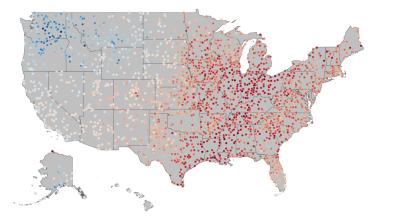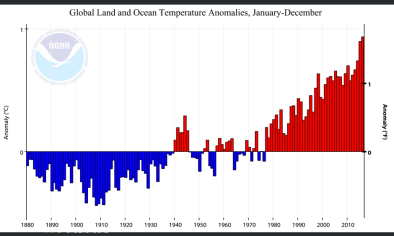Science Source
Regional climate change and national responsibilities
- States that global warming over the past several decades is now large enough that regional climate change is emerging above the noise of natural variability, especially in the summer at middle latitudes and year-round at low latitudes
- States that despite the small magnitude of warming relative to weather fluctuations, effects of the warming already have notable social and economic impacts
- States that global warming of 2 °C relative to preindustrial would shift the 'bell curve' defining temperature anomalies a factor of three larger than observed changes since the middle of the 20th century, with highly deleterious consequences
- Finds that there is striking incongruity between the global distribution of nations principally responsible for fossil fuel CO2 emissions, known to be the main cause of climate change, and the regions suffering the greatest consequences from the warming, a fact with substantial implications for global energy and climate policies
- States there has been 0.9°C warming since pre-industrial times using NASA data; global mean warming is ~0.6 °C relative to NASA's baseline of 1951–80, and 1951–80 is ~0.3 °C warmer than pre-industrial
Related Content
Science Source
| World Meteorological Organization (WMO)
WMO Statement on the State of the Global Climate in 2016
Real Time Data

Mar 15, 2017 | Global Historical Climatology Network–Daily (GHCN-D)
US Annual Average Temp as Departure from Normal
Headline

Jan 19, 2017 | Category 6
Confirmed: 2016 the Warmest Year in History of Global Recordkeeping
Headline

Jan 19, 2017 | Los Angeles Times
Wildfires, sea level rise, coral bleaching: Climate change is already here


